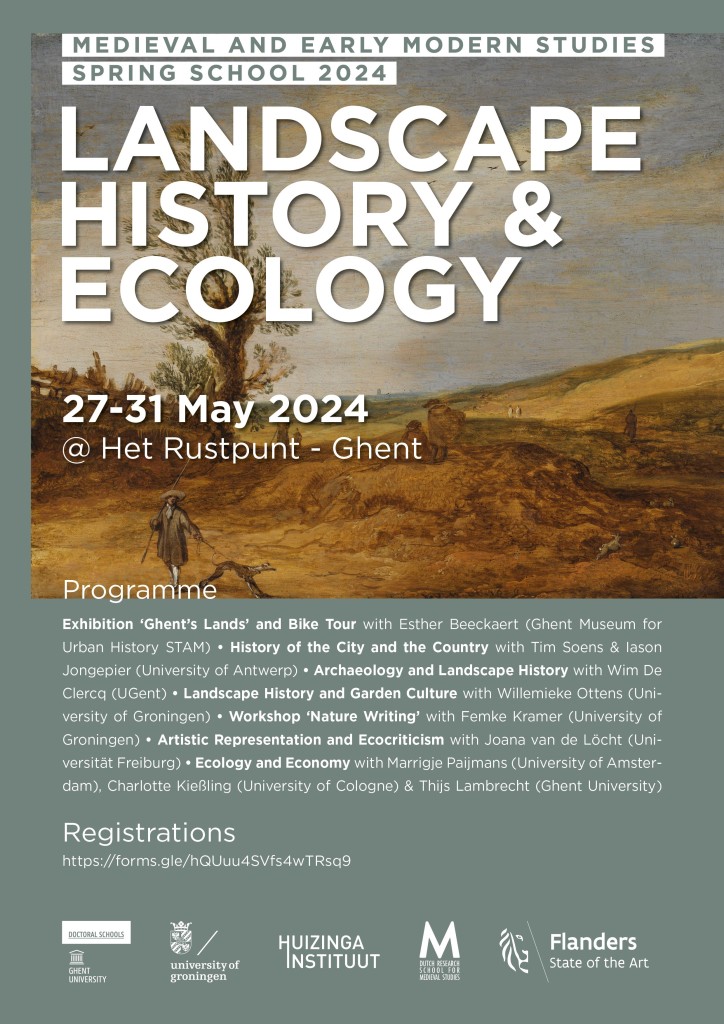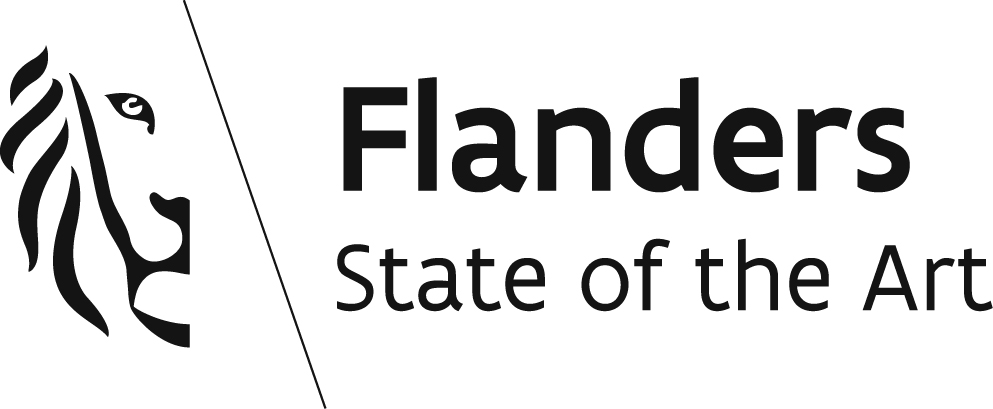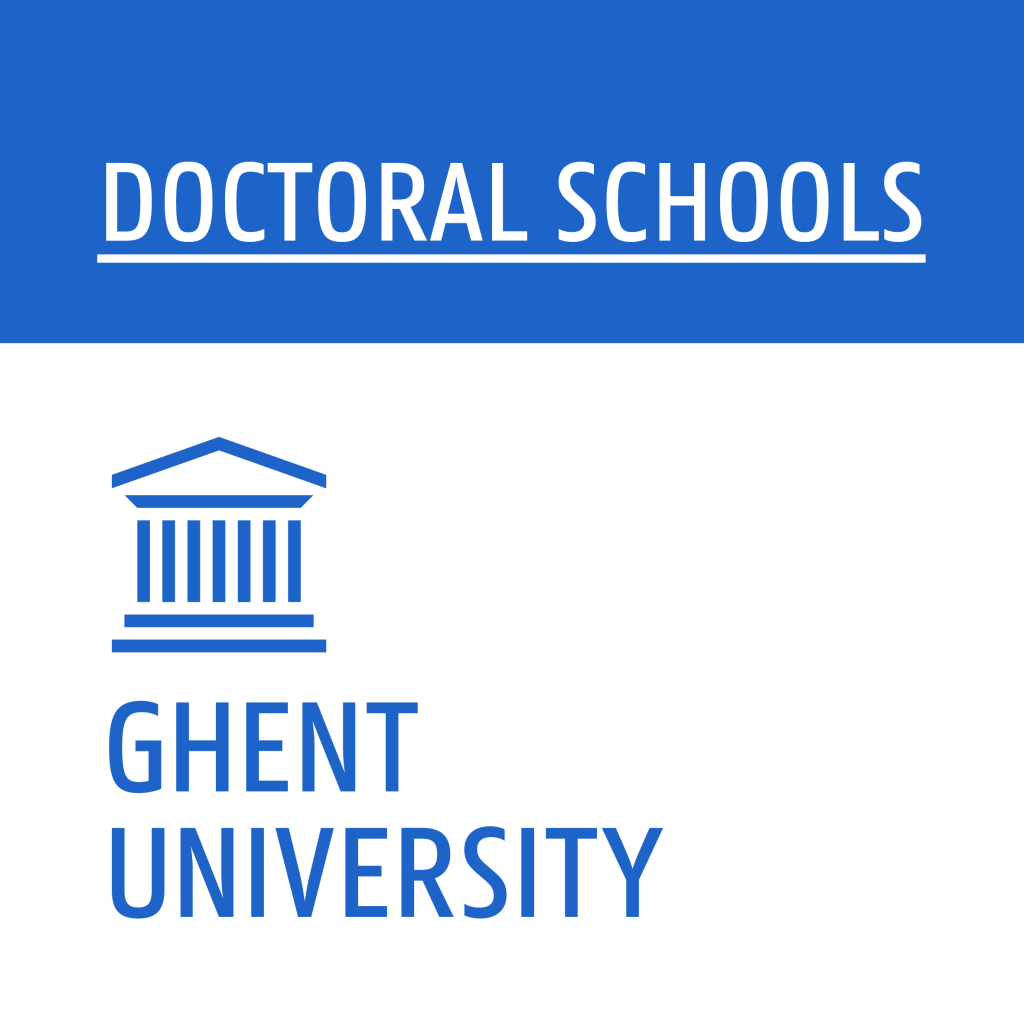-
Fri12Apr2024Sat29Jun2024Museum Het Warenhuis (Markt 2, 4571 BG Axel)
Exhibition: Vers uit de tuin. Petrus Hondius’ dichterlijke wegwijzer door het zeventiende-eeuwse landschap.
Show contentFrom the 12th of April until the 29th of June 2024 you can visit an exhibition co-curated by GEMS-members Kornee van der Haven and Caroline Baetens in collaboration with Piet de Blaeij from Museum Het Warenhuis. The exhibition centres around the early modern Dutch poem Dapes inemptae, of de Moufe-Schans (1621) in which Petrus Hondius celebrates his life in the garden the ‘Moffenschans’. You can explore the seventeenth-century garden life in this exhibition through Hondius’ verses. You walk through the garden and the poetry to get a unique picture of garden life in the seventeenth century. The garden comes to life as a place of pleasant gatherings, of plant science, of experimenting with nature and landscape, but also as a place where you can indulge in gardening.
For more information you can read the description in Dutch below:
Vers uit de tuin. Petrus Hondius’ dichterlijke wegwijzer door het zeventiende-eeuwse landschap.
Tentoonstelling UGent & Museum Het Warenhuis (Axel), 12 april – 29 juni 2024
Bij verse oogst uit de tuin denk je waarschijnlijk in de eerste plaats aan wortels of komkommer. In de zeventiende eeuw oogstten tuinbezitters niet alleen groenten, maar ook dichterlijke verzen uit de Zeeuws-Vlaamse grond! Die gedichten geven een inkijkje in hoe het rijke tuinleven in de zeventiende eeuw werd ervaren. Een van de eersten die over dat leven in de tuin dichtte, was predikant Petrus Hondius. In 1621 bezingt hij in zijn dichtwerk, Dapes Inemptae, of De Moufe-schans, alles wat er te beleven valt in zijn tuin bij Terneuzen (de Moffenschans): van maaltijden met groenten van eigen bodem, tot de kweek van zeldzame bloemen en uitstapjes door de omliggende velden.
Van 12 april tot 29 juni 2024 kun je in Museum Het Warenhuis te Axel via Hondius’ wandelpaden zelf het zeventiende-eeuwse tuinleven verkennen in de expositie. Je bewandelt de gangen van de tuin via het dichtwerk en krijgt zo een uniek beeld van het tuinleven in de zeventiende eeuw. De tuin komt tot leven als een plek van gezellige samenkomsten, van plantwetenschap, van experiment met natuur en landschap, maar ook als een plaats waar je je kunt uitleven in het tuinieren. Wie weet herken je je eigen ervaringen wel in Hondius’ verzen of leiden zijn wandelpaden je tot nieuwe inzichten over de hedendaagse tuin!
Veel idealen uit Hondius’ poëzie zijn herkenbaar voor een hedendaagse lezer. Net zoals stedelingen vandaag aan de drukte trachten te ontsnappen in een tuin of park, zochten diegenen die daar de mogelijkheid toe hadden ook in de zeventiende eeuw de rust van het platteland op. De Terneuzense predikant geeft dan ook uitdrukking aan die herkenbare drang naar ontsnapping in een groen decor. Ook hedendaagse idealen van zelfvoorzienendheid of lokaal shoppen lijken al vroeg in die literatuur vorm te krijgen, want ook Hondius streeft naar ‘Ongekochte spijs’ of groenten van eigen bodem. Zijn verhaal schetst niet alleen een uniek beeld van het rijke tuinleven in de zeventiende eeuw, maar biedt dus ook een leidraad voor reflectie op onze bedrijvigheid in de tuin vandaag.
Als je het museum uit stapt, kun je de wandeling verderzetten en met een nieuwe blik het landschap rondom verkennen. Op een boogscheut van het museum vind je een laatnegentiende-eeuws landhuis dat nog steeds de naam ‘Moffenschans’ draagt, naar Hondius’ tuin die zich daar eeuwen eerder bevond. Te voet, te paard of te vloot bereist Hondius vandaaruit de polders, schorren, duinen en rivieren rondom zijn tuin. Hij treedt buiten de omheining en legt een breder beeld van het Zeeuws-Vlaamse landschap vast in woord. In de expositie leer je dus iets nieuws over de zeventiende-eeuwse beleving van de directe omgeving van de tuin en het hedendaagse museum.
Ontdek wat het Zeeuws-Vlaamse tuinleven in de zeventiende eeuw zo uniek en toch zo universeel maakt, van 12 april tot 29 juni 2024 in Museum Het Warenhuis (Markt 2, 4571 BG Axel).
Dit project is een samenwerking tussen Museum Het Warenhuis en de Vakgroep letterkunde aan de Universiteit Gent. De expositie kwam tot stand met de steun van de Faculteit Letteren en Wijsbegeerte van de Universiteit Gent, het Maatschappelijk Valorisatiefonds van de Universiteit Gent, het Fonds Wetenschappelijk Onderzoek – Vlaanderen en het Scheldemondfonds.
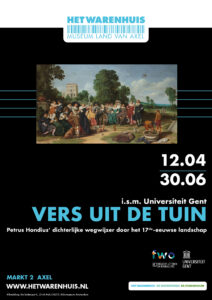
-
Wed15May2024Fri17May2024VANDENHOVE Centrum voor architectuur en kunst (Rozier 1, Ghent)
Conference: ‘Performing theatricality and imaging religious ceremonies in early modern Western Europe’
Show content2023 marks the 300th anniversary of the publication of the early eighteenth-century book series Cérémonies et coutumes religieuses de tous les peuples du monde, a work on all the world’s religions known to Europe at that time and originally published in seven volumes between 1723 and 1737 in Amsterdam. Edited by the exiled French Huguenot Jean Frederic Bernard, the original seven volumes of the Cérémonies knew a vast distribution across European readers in the Netherlands, France, England, and the Holy Roman Empire, among other countries. Its popularity was at least partly due to the impressive set of prints included within the books. After all, the engravings were for the most part manufactured by the exiled Parisian artist, Bernard Picart, who was known as one of Europe’s most distinguished engravers at that time.
More than ten years after the publication of some pioneering studies on the project – Religionsbilder der frühen Aufklärung (2006), The Book That Changed Europe (2010) and The First Global Vision of Religion (2010) – the intriguing ceremonies and customs of the various religions depicted in the books still capture the imagination. This is not only caused by their ingenuity regarding the comparative method of inquiry into religion in general, as earlier research widely acknowledged, but also because of their importance as an early modern compendium of imaging religious ceremonies. After all, as the title already indicates, the Cérémonies discusses global religious ceremonies and customs. It focusses on performing religion, instead of on religion as such.
In line with Picart and Bernard’s project, this conference aims to focus on the ways in which early modern Europeans related to religious ceremonies of all kinds, ranging from customs that were familiar to Western Europe’s everyday religious life, to rituals from peoples across the globe that were still rather alien to early modern Europeans. How did early modern Europeans perceive religious rituals practiced in other parts of the world, particularly those in overseas territories? To what extent did early modern knowledge production on religious customs contribute to the development of early anthropology and ethnography in the latter half of the eighteenth century? How did representations of religious rituals either endorse or challenge existing knowledge on various religious practices? In what ways did the early modern period witness a shift toward a more encyclopedic approach to representing the ceremonies and customs of various religions, and how did this reflect broader intellectual trends of the Enlightenment era?
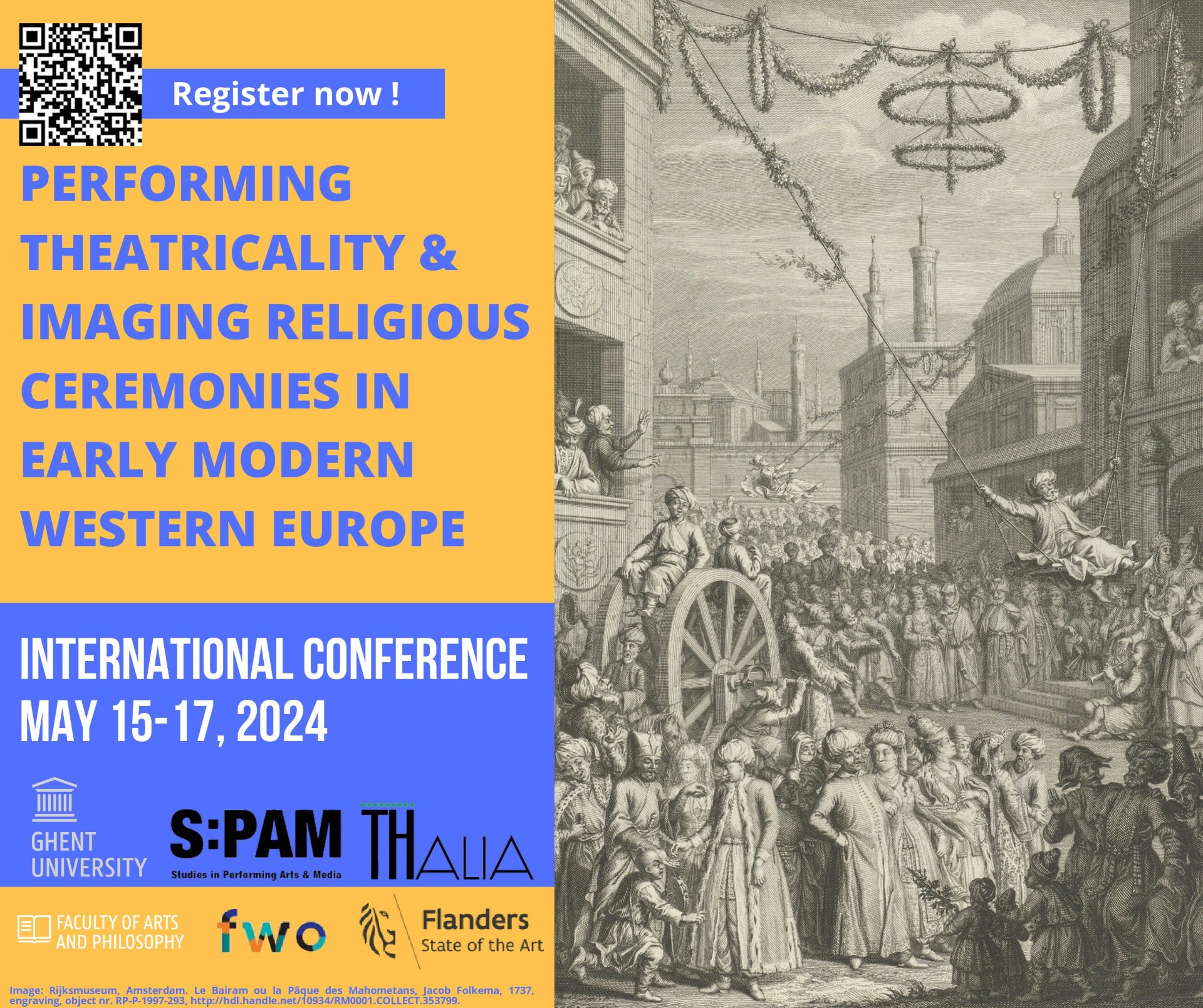
-
Mon27May2024Fri31May2024Het Rustpunt (Burgstraat 110/116, Ghent)
Medieval and Early Modern Studies Spring School 2024
Show contentLandscape History & Ecology – Ghent, 27-31 May 2024
This Spring School is organised by Ghent University (Doctoral Schools), University of Groningen, the Huizinga Institute and the Dutch Research School for Medieval Studies to stimulate contacts and exchange between PhD candidates and ReMa students in the field of cultural history, art history, historical geography, urban history, archaeology, early modern history, medieval history, literary studies, environmental psychology, environmental design and engineering, sustainability studies and environmental education. The course will mainly focus on the Middle Ages and the Early Modern Period, but students working on Antiquity or the Modern Period can attend as well.
Topic
Climate change, depletion of natural resources, loss of natural and cultural landscapes, and many other (ecological) sustainability challenges urge us to (re)evaluate human interaction with the natural world. This renewed environmental consciousness has invigorated not only scientists working on effects in the present and solutions for the future, but also those who study the (distant) past. It has become clear that we need to take the story back(much) further than the industrialisation of the second half of the eighteenth century. Specifically in medieval and early modern studies, scholars have uncovered the deep historical backgrounds of the anthropogenic ecological challenges, including (over)exploitation of natural landscapes, diminishment of open space, deforestation, food production, use of energy and water, fauna and flora extinctions et cetera. Over the past decades, ever more research has been conducted into the ecological impact and implications of practices in different landscapes. Also the traces of environmental mentalities in art and the cultural representation of human interactions with the environment is a flourishing field, strongly influenced by ecocritical approaches. The Spring School will therefore pay attention to a wide range of ecological issues in history related to the landscape of city, country and colony and their mediation in cultural production, most notablyliterature and art. It combines a focus on the medieval and early modern period with an multidisciplinary perspective, attending to the theoretical and methodological background of landscape and cultural history, ecocriticism and archaeology.
Approaches
This course takes four topics and methodologies related to historical landscape and ecology as a starting point:
(A) History of the city and the country,
(B) Archaeology and landscape history,
(C) Artistic representation and ecocriticism,
(D) Ecology and economy.
Ten specialists will reflect from their scholarly background (landscape history, archaeology, literary studies, cultural history) on ecological issues in their own research. An accompanying reading list gives rise to further reflection and discussion with the participants. This will offer students a framework to think theoretical concepts and methodologies through in relation to their own work. Through short pitches the attending PhD students will reflect on the possibilities and difficulties of working with the same concepts and methodologies in their own research projects. A guided bike tour on the ecology of the city Ghent and its surroundings will be part of the programme, as well as an excursion to the Zwin-region and Zeeland Flanders, with presentations and discussions ‘in the field’.
Programme
Session I: Visit Exhibition ‘Ghent’s Lands’ & Bike Tour – Guide: Esther Beeckaert (Ghent Museum for Urban History STAM)
Session II & III: History of the City and the Country- Lecturers: Tim Soens & Iason Jongepier (UAntwerpen)
Session IV: Archaeology and Landscape History – Lecturer: Wim De Clercq (UGent)
Session V: Landscape History and Garden Culture – Lecturer: Willemieke Ottens (Rijksuniversiteit Groningen)
Session VI: Workshop ‘Nature Writing’ – Lecturer: Femke Kramer (Rijksuniversiteit Groningen)
Session VII: Artistic Representation & Ecocriticism – Lecturer: Joana van de Löcht (Universität Freiburg)
Session VIII & IX: Ecology and Economy – Lecturers: Marrigje Paijmans (University of Amsterdam), Charlotte Kießling (University of Cologne) & Thijs Lambrecht (Ghent University)
Registration
PhD students and ReMa students are invited to register for this course before 12 January 2024 through the following link: https://forms.gle/hQUuu4SVfs4wTRsq9 Please note that there is a limited number of places available for this course. After your registration you will soon receive more information about whether your registration can be confirmed or not. Some of the participating graduate/doctoral schools will cover tuition and lodging for their participating members (please wait for more information after your registration).
Organising institutions and partners
This Spring School is organised by Ghent University (Doctoral Schools), the University of Groningen, the Huizinga Institute and the Research School for Medieval Studies in cooperation with the following research groups: the Group for Early Modern Studies (UGent), the Henri Pirenne Institute for Medieval Studies (UGent), the Amsterdam Centre for Studies in Early Modernity (UvA), the Groningen Research Institute for the Study of Culture (Rijksuniversiteit Groningen), the Centre for Urban History(UAntwerpen), the Institute for Early Modern History (UGent-VUB) and the Onderzoeksgroep Nieuwe Tijd (KU Leuven). The Spring School was also made possible by the Rudolf Agricola School for Sustainable Development (University Groningen).
Organising committee
Caroline Baetens, MA (UGent, Group for Early Modern Studies), Dr. Femke Kramer (Rijksuniversiteit Groningen, Research Institute for the Study ofCulture), Dr. Stefan Meysman (UGent, Pirenne Institute for Medieval Studies), Dr. Marrigje Paijmans (UvA, Amsterdam Centre for Studies in Early Modernity), Prof. Jeroen Puttevils (UAntwerpen,Centre for Urban History), Prof. Hanneke Ronnes (UvA / Rijksuniversiteit Groningen, Landscape History), Prof. Kornee van der Haven (UGent, Group for Early Modern Studies)
